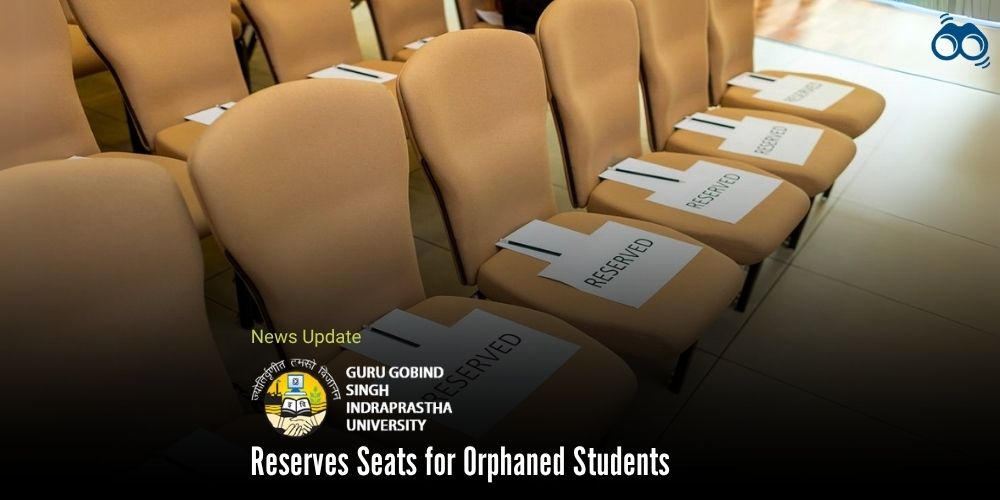University Announces New Educational Support for Orphans, Strengthening Equity in Admissions
IPU to Provide Tuition Fee Waivers for Orphaned Students Under EWS Scheme
India has approximately 30 million orphaned children, with only a small proportion residing in formal childcare institutions. Many of these children encounter significant challenges in accessing education, primarily due to financial constraints and limited institutional support. To foster inclusive education, Guru Gobind Singh Indraprastha University (IPU) has announced the introduction of a special quota for orphaned students, which will be implemented from the 2025–26 academic session. This initiative builds upon the Single Girl Child quota, introduced the previous year, further reinforcing the university’s commitment to equitable access to higher education. By implementing this policy, IPU aims to create a supportive and inclusive academic environment, thereby ensuring greater educational opportunities for marginalised students.
According to the decision of the university’s Academic Council, one additional seat will be reserved in each programme and school specifically for eligible orphaned students. Furthermore, these students will receive a full tuition fee waiver under the university’s Economically Weaker Section (EWS) scheme, thus providing financial support for their academic pursuits. Vice Chancellor Padma Shri Professor (Dr) Mahesh Verma stated that the initiative reflects the university’s commitment to inclusive education, particularly for children who lost their parents due to COVID-19 or other circumstances. Additionally, he emphasised that the university plans to support these students financially through government schemes. Notably, Guru Gobind Singh Indraprastha University (IPU) will be among the first institutions in the country to introduce a reservation quota for orphaned children. University officials have confirmed that detailed guidelines will soon be published on the university’s website.
During a recent Academic Council meeting, several new initiatives were discussed, including a dedicated PhD programme for working professionals, lateral entry into the MBA (Fire and Industrial Safety) programme, and the introduction of Spanish and other widely spoken foreign languages into certificate courses. Additional proposals included a five-year integrated BA-MA in Philosophy, four-year BEd Special Education programmes in three new disciplines, and a Post-MSc Diploma in Radiological Physics.
Furthermore, the university has announced plans to establish an “In-Situ Centre for Indian Knowledge System and Technology Innovation”, aimed at promoting India’s traditional knowledge systems. Additionally, the Narela campus is set to become operational soon, commencing with the MSc in Microbiology and a range of new certificate and diploma programmes. Ultimately, through these strategic initiatives, IPU continues to strengthen its commitment to inclusive education and academic innovation.
Editor’s Note
Guru Gobind Singh Indraprastha University’s decision to introduce a special quota for orphaned students is a commendable step towards inclusive education. Too often, children without parental support face financial and social barriers that prevent them from accessing higher education. By reserving seats and offering a full tuition fee waiver, the university is removing a major obstacle for these students, ensuring they have the same opportunities as their peers. This initiative is not just about admission quotas; it is about giving orphaned students a fair chance to build their futures. Higher education provides them with the skills, confidence, and stability needed to succeed in life, and financial support makes this possible. The policy also acknowledges the challenges faced by children who lost their parents due to COVID-19 and other circumstances, offering structured help at a time when many are struggling.
Skoobuzz underlines that more universities should take inspiration from this move and implement similar policies that prioritise students who need it most. Education must be a path to empowerment, not a privilege limited by financial constraints. Through this initiative, IPU has set a strong example of how universities can create real and lasting change.














0 Comments (Please Login To Continue)